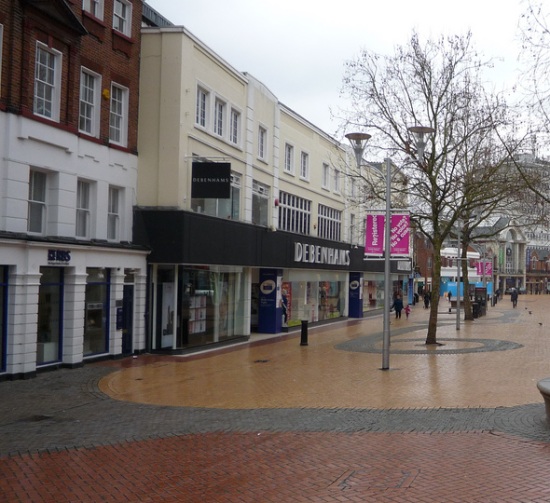There have been so many shocking ups and downs this year in terms of record profits and administrations that keeping up with them all has been a tough job. As we say goodbye to 2012 and welcome the New Year, Movehut summarises the high street’s highs and lows from the year.

In January Blacks Leisure which owns both Blacks and Millets went into administration. However, the company was offered a lifeline when JD Sports bought 226 of their commercial properties, which meant that only 80 stores were closed.
Peacocks also fell into administration at the start of the year. But again they were saved when Edinburgh Woollen Mill bought them out. 350 stores were saved in the deal, but as 200 were closed around 3,000 people were left unemployed.
One of the earlier shocks of 2012 was the announcement that GAME had gone into administration. The company was bought by Baker Acquisitions Limited, a sub company of OpCapita. The deal saved the jobs of over 3,000 workers and also prevented 333 commercial properties from closing their doors for good.
Another shocker for the high street in 2012 was the demise of Clinton Cards. But the company was saved when Lakeshore Lending Limited, a subsidiary company of American Greetings Corporation bought the high street chain. Some stores were closed whilst others were given revamps, but the famous card shop is going nowhere anytime soon.
Later in the year, JJB Sports, another large well-known brand went into administration. The company was bought by Sports Direct, but like many other deals, they had the choice of which stores they wanted to purchase. Around 2,000 jobs were lost during the deal, but things could have been a lot worse.
Finally, the biggest shock of all is probably the announcement of Comet going into administration. Around 200 stores were closed earlier this month and staff had an uncertain wait to see if a buyer was found by the 18th December. Unfortunately no-one stepped forward to buy the chain resulted in the remaining stores closes and a total of over 6,000 job losses.
With all the misery of which retailers have struggled or collapsed completely in 2012, it is nice to hear some news of who has had a good year.
One retailer which recorded record profits is Aldi, who saw profits rise by 450 per cent this year alone. The bargain food chain has been investing in new lines of products as well as store expansions.
Speaking of their success this year, Mathew Barnes, Managing Director of the retail chain, said: “We are constantly looking at what we do and innovating in line with consumer demand. This has seen us expand our product range by 30 per cent.”
As you can see there were more lows than highs in 2012 when it comes to the high street. But 2013 is a brand new year, so here’s hoping that people start venturing out to their local town centres. Don’t forget, “Keep Calm and Browse the High Street.”
Previous Post
Top Five Most Irritating Office Habits Revealed